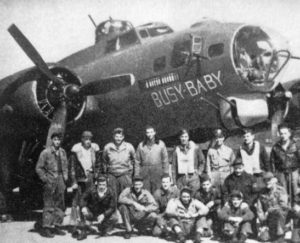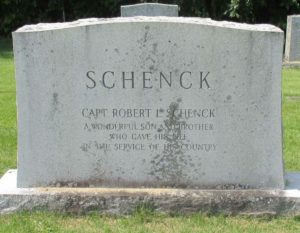By Cara Rinkoff, Programs and Public Relations Director
On March 8, JWV National Commander Nelson Mellitz testified before a joint hearing of the Senate and House Veterans Affairs Committees. Mellitz testified alongside leaders of eight other organizations.
Several members of JWV were at the hearing to show support for Mellitz, including Vice Commander Barry Lischinsky, Chief of Staff Larry Rosenthal, Department of New Jersey Commander Selina Kanowitz, and New York Senior Vice Commander Gary Ginsburg.
Here is the statement he delivered:
Chairmen Tester and Bost, Ranking Members Moran and Takano, veterans in the audience, veterans sitting in Congress, veterans at this table. It’s my honor to serve, and sir, I’ve heard you say that before and I 100% agree, we serve not only in the military, we serve as veterans.
I have served 32 years in the United States Air Force, enlisted and as an officer. I enlisted in 1970, served Vietnam through Iraq, 2005-2006 in Iraq. It was my last assignment. The reason I say this is not to make myself sound good, but when I left the military originally, after the Vietnam War, I went to the VA, I didn’t go back a second time for a lot of years. The VA has improved, has substantially improved, they’re wonderful now in many areas. It’s because of what the VSOs have done, what you have done in Congress. Thank you for that.
I have the privilege and the honor to represent the Jewish War Veterans as the 93rd, sorry, 91st National Commander. The Jewish War Veterans is the oldest national veterans organization in the United States. We were formed in 1896 by a few veterans from the Civil War. The reason we were formed is because of antisemitism. Again, we’re the longest serving veterans service organization. We advocate for all veterans, not just Jewish veterans, but for all veterans, for benefits and services and we’ve been doing that for at least 127 years. In fact, we’ll be celebrating our 127th anniversary next week on March 15.
Our mission is strong and clear. Fighting for military and veterans benefits and services, advocating on behalf of Jewish veterans, Catholic, women, African Americans, Asians, all veterans… We oppose all forms of discrimination, but we concentrate especially and we’re outspoken on antisemitism…. We will defend the right of everybody in this United States and we will continue to do so… As antisemitism continues to grow in the United States, JWV asks you, Congress members, to specifically help defend our country’s freedoms and go forward and fight antisemitism and all forms of hate and bigotry wherever it exists. Key to that, in our opinion, and at JWV is educating the U.S. citizens.
We have priorities for the 118th Congress… I will emphasize a few things that are important not only to JWV but to you and we haven’t really mentioned them to the extent I think is necessary.
We know the PACT Act was instrumental when you passed it. It took a lot of pressure. It didn’t just take one year for the VSOs to put the pressure on Congress members, it took many years. Please keep that in mind for future efforts. But with the PACT Act we also know that VA started working on hiring people, organizing to address the 3.5 million new claims that they estimate will be filed. But yet, it’s not enough. I know there are some bills going through Congress right now that say give more money to doctors, nurses, administrators at VA. We need to push those bills through the system because if we don’t have those people in place, claims will increase and then the appeals will increase continuously.
Yes, we addressed toxic exposure by the PACT Act, do all the veterans out there know about their benefits? The VSOs and Congress have to stand out. Make sure they know those benefits, know that they can apply for the benefits, put claims in. You addressed in a previous meeting the predator lawyers. Yes, JWV agrees with Veterans of Foreign Wars, penalties should be applied to those people. But there should also be incentives for additional veteran service officers to come out, to be employed by the organizations like the Jewish War Veterans. Yes, we’re increasing our program and trying to recruit as many VSOs as possible to process those claims and we will do that.
Suicide prevention and mental health. We obviously know more must be done. We know that one veteran, one military member taking their life is too much. But everything I’ve heard over all these many panels, all these many hearings, didn’t address what happens in the military before you get to the veterans side. I think, from day one that you join the military, you should be addressing, in the military, mental health. When you go through basic training, that is extremely important to address it. I think maybe even before that, and we work with an organization called Our Community Salutes, who actually works with the families of the veterans, of the military members rather that are going into the military directly out of high school…
Supporting women veterans. The fastest growing group of veterans, as you know, is women. It’s haphazard. I visited many veterans locations, many veterans affairs medical centers, and some are great. The one that I go to in Philadelphia is fantastic at addressing women’s needs. That might be because the director is a woman. I don’t know. I’ve gone to others and that’s not the case. It needs to be looked at not as a total VA package, but individual centers.
Expanding service to veterans and caregivers. Again, we know this is important. One area we want to stress is, JWV urges Congress to remove the regulatory requirement for the 70 percent disability rating to be eligible for this program. That’s ridiculous. And that’s my words. Take it out. It wasn’t there before. Take it out.
Major Richard Star Act. Committee Chairman Tester, thank you for heading up that effort. And there are others. In New Jersey where I come from, we have gone to all our Senators, all our Congresspeople, and they have signed on. We have encouraged all the JWV members to go to the 50 states and territories and get their Senators and Congresspeople to also sign on. It impacts over 50,000 combat injured veterans.
Ending veterans’ homelessness. We’ve made progress. Between 2020 and 2022, 11 percent of the veterans that were on the street are no longer homeless. The best we’ve done in five years. The problem is that’s not good enough. JWV has submitted to many of you members just last week steps that we should take that you haven’t really discussed before. I don’t have time in my short period of time here to go over them, but I encourage you to look at that, I’d be happy during the questions and answers to answer some questions.
Fixing the electronic system, and I’ll be very quick with this, I know we have one other item after this. I worked for the IRS for 11 years during the period of time they put their new tax base database in place. We did a better job than VA’s doing. What’s going on here? Less money. Yes, we made some mistakes at first, but we now have tax returns coming in from more than 65 million taxpayers. What’s VA talking about? A maximum of 12 million with the new PACT Act. Please do oversight on this. I don’t know what the problem is, we don’t need any more research, we need implementation. And go back to DoD like was said by VFW. You need to start the process with DoD and not just be isolated. And I know there’s committees that talk to each other between VA and DoD, but they’re not doing what we need.
Conclusion. We started out in the military. Most of us volunteered. We served out country. Now we’re veterans and we’re still volunteering. Everybody on this table is a volunteer. Many of you are volunteers and veterans service organizations. We continue to serve. Call on us. We can help you. And we love this nation. G-d bless the United States of America. Thank you.
House Veterans Affairs Committee Chairman Mike Bost (R-IL) recognized Mellitz for a question on veteran suicide, and Rep. Morgan Luttrell (R-TX) said he agreed with Mellitz when he called for mental health treatment to begin at the start of basic training.
You can watch Mellitz’s testimony on our website or find the entire hearing on the YouTube channel of the House Veterans Affairs Committee.
Volume 77. Number 1. 2023



